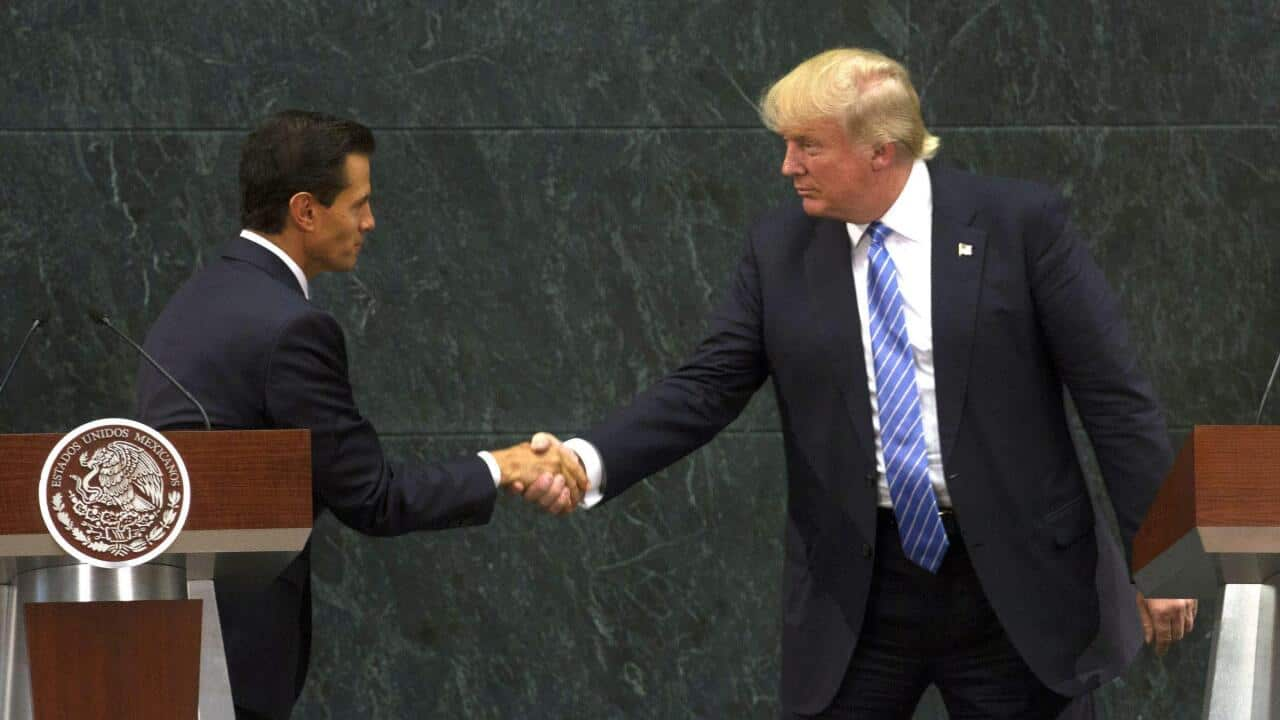Donald Trump can only win the US presidential election by securing the white electorate “by a huge margin”, Professor Shanto Iyengar told SBS.
That is, Trump must convince "college-educated whites repelled by his race baiting" that he's not racist.
As the election campaign enters its final stretch, Trump has attempted to angle himself as supportive of the Mexican community, comprising about of US population, through a scripted visit to the country where he offered a rare show of praise and described the leadership of President Enrique Peña Nieto as "wonderful".
The meeting would later prompt several of Trump's staff to resign as anger grew in Mexico that the encounter only gave him the opportunity to look presidential, weakening Mexico's international reputation.
A few days later Trump vied for black support when he paid a visit to an African-American church in Detroit and met with pastor Bishop Wayne T. Jackson.
These efforts are "actually not aimed at minority voters, but it’s actually aimed at convincing whites that maybe he’s not such a racist after all," Professor Iyengar said.
However, the last-ditch effort before election day on November 8 would likely fail, he said.
"The prospect of a Trump presidency, I believe, is an anathema to a good many Americans.
"It's virtually impossible for him to now come out and say, 'Hey, there's a new Donald Trump'."
He added Trump's failure was further compounded by the fact he couldn’t secure non-white votes on his own side.
"If you cannot get ... 10 to 15 per cent of the non-white voters that are Republican, well you don't have a chance."
Trump cannot hope to regain the trust of the black community, because his racist attitudes have long been etched in their minds, Professor Iyengar said, providing the example of the Justice Department filing a case against his real estate empire in the 1970s for rental property based on their race.
On the other hand, Hillary Clinton was smart to be laying low.
"Mrs Hillary Clinton has been invisible in the last two or three weeks because she knows she’s ahead and by giving an interview she doesn’t want to run the risk of, you know, raising more controversies," Iyengar said, referencing her use of a private email server during her tenure as secretary of state, instead of the official federal server, which a federal judge deemed "extremely careless".
A Reuters/Ipsos poll from September 1 positioned Clinton's popularity at 38.8 per cent compared with Trump at 32.9 per cent.












